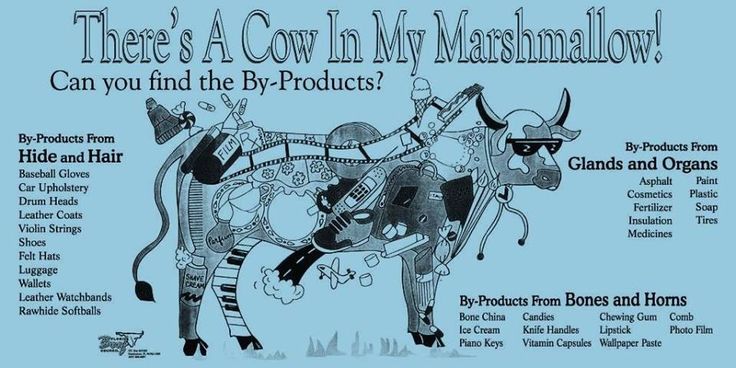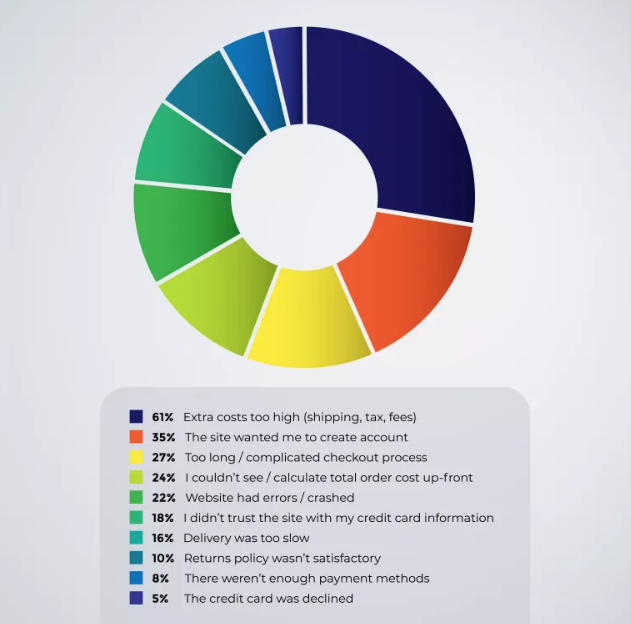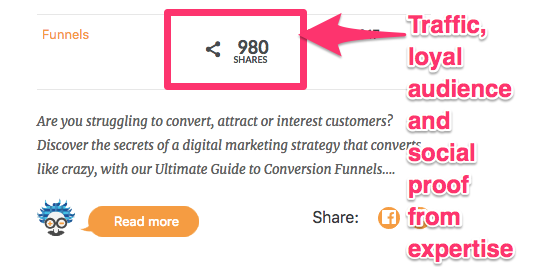What can digital marketers and online businesses learn from chicken feet?
A link is hard to find, but…
…if you roll back the days to when VHS cassettes were all the rage, Windows solitaire was your favourite computer game and Pokemania was in full effect, you might just discover a lesson that could maximise your profits.
That’s right, you’re back in the 90’s, but why?
Within this decade, a massively profitable stride was taken in the world of chicken farming.

For those who don’t know what Permaculture is, let me explain with the help of a couple of examples, starting with our chicken feet.
A little over 20 years ago chicken feet were a costly commodity for farmers. For every chicken slaughtered and sold, a pair of feet remained and nobody wanted them.
(When you consider how many chickens we consume on a daily basis, that’s a hell of a lot of feet!)
Farmers had so many feet left over, they’d have to pay for them to be taken away and disposed of, but then…
…the world got smaller, and globalisation became a feasible reality for farmers. This presented an opportunity to create a transnational business, profiting from something that had always been considered a costly by-product.
Farmers began to sell chicken feet to China, where they are considered a delicacy. Fast forward to the 2010’s, and American farmers now export over 300,000 metric tons of chicken feet a year, bringing in more than $40 million in revenue. The expensive waste, became treasure, with some chicken farmers citing feet as their most profitable commodity.

Permaculture has many branches, but one of its core principles is to USE EVERY COMMODITY AVAILABLE. Without knowing it, many digital marketers and businesses create numerous potentially profitable by-products. This article is going to help you pinpoint them and do the chicken-feet-thing.
Lessons to Learn
Agriculture is the oldest industry known to mankind, and because of its importance to our survival, it has gained attention from many great thinkers.
Manure was seen as a by-product of farming animals, we now use the manure of chickens, horses, cows (and probably more) as fertiliser.
Straw is a by-product of cereal plants. After the grain has been harvested, the dry stalk is used as bedding, animal feed, for crafts, hats, rope, packaging, thatching, basket-making, construction, archery targets, the list goes on and on.
Your business will have many dry stalks. It’s time you took advantage of them.
By-Products

Your business creates by-products, it doesn’t matter if you sell products, services or content.
I cannot write about every industry, and detail how you could profit from manufacture, but I can tell you how Einstein Marketer has helped businesses create new revenue streams from areas that were otherwise overlooked or ignored.
The main area of focus are processes:
- How do we get from point A to point B?
- What does it take to get there?
- What do we use on the journey?
- And how can we market and sell that transport?
Let’s start with a brand boosting, customer drawing by-product, that grows alongside your business.
People
What would be worse?
#1. Investing in staff and they leave?
#2. Not investing in staff and they stay?
Your journey to growth, greater profit, autonomous management and the lifestyle you desire, relies upon people. They are a by-product of your journey, and you need to learn how to make money from them.
I’m not going to push forward the idea that you must train your people to make more money, we all know that better staff return better results.
Instead, I want you to look at things a little more sideways, with a little less fear.

Staff members with greater profiles, expert status and industry-respect elevate brands. Their credibility, knowledge and fame are transferred into an onlooker’s perspective of your business.
But before looking at staff, I want all CEO’S, founders and entrepreneurs to ask themselves these questions:
- -What is your profile like?
- -Are you leveraging yourself to drive more traffic and convert more leads?
- -Can you build a profile that commands respect in your industry?
- -Will audiences look to your personal advancements with belief or bemusement?
- -Do people associate your industry with your valuable knowledge?
- -Can you market your business using your profile, as well as your brand’s?
If you are, the next step is to look at the development of the people within your brand. Ask yourself:
- -Whose profile could you promote to increase awareness of what you do?
- -Will their profile add value?
- -Who has great expertise?
- -Do any of your staff get recommendations for their services? Or always receive referrals?
- -Can you trust them enough to promote their own social media accounts on your businesses website?
- -Can somebody within your brand build an audience that can become profitable?
If I was to tell you that Bill Gates is investing a large amount of money in a new computer software (without telling you what that software is), you’d already believe it’s ground-breaking. Increasing its chances of success.
Alternatively, if I told you that Bill Gates was running a workshop on how he built Microsoft, would you pay for a ticket? And how high would you go?
Learn how to leverage the people by-product, and you’ll boost your business’s chances.
Consider writing a book about your industry, doing talks and sharing videos of wisdom. Encourage suitable employees to do the same.
Data
Sharing data isn’t purely about winning. It holds a lot more value when compared to losses. Can you answer any of these questions:
- Have you created a campaign that didn’t convert?
- Written copy that failed? Added a new product that wouldn’t sell?
- Adjusted your landing page and it decreased conversions?
- Promoted to an audience that didn’t buy?
Mistakes and failed tests are hugely valuable by-products. Industry-specific errors are sort after commodities, as are (general) digital mistakes.

If you are able to collate data and demonstrate results as case-studies, lessons, guides or analysis, you can create value. Especially when you detail how you corrected the mistake in the form of strategies, tactics and fixes.
The internet is full of people calling themselves ‘experts’, unfortunately many of them don’t have any experience in their chosen industry. Producing content that is formulated from REAL-WORLD, in-the trenches experience will cut through the ‘pollution’.
Attracting people to this content creates audiences, boosts brand awareness and if you’re any good, generate new revenue streams.
At Einstein Marketer, we regularly encourage our clients to produce high-value content like e-books, case studies and video guides from their industry knowledge.
We then use the content to collect leads, make sales (further down the line) and collect information about audiences for future targeting campaigns. When a client is able to use a business experience (the by-product) to create something super-valuable, we occasionally use it as a TRIPWIRE OFFER.
Data driven content is an incredibly valuable by-product that your business should implement. Content marketing is growing in importance year-on-year, but by using real-world data and experiences, you will separate yourself from the rest.
Position yourself as an expert, increase trust and give new audiences a reason to visit your digital world with this insanely valuable by-product.
Influence
Another by-product of creating a successful business or brand is influence.
Many marketers are looking to influencers to reach loyal followers. Becoming a social media influencer is a definite opportunity for entrepreneurs with large audiences, but…
…what about businesses?

Influence can be used to adjust a target market’s priorities. To help understand how and why, let’s look at the motor industry.
According to Statista, a 2018 UK study found that 60% of people viewed fuel efficiency as the most important factor when buying a car. This finishes above high quality, driving comfort, design, price, suitability for everyday use, warranty. On top of this, 23% cited environmental friendliness as one of the most important characteristics.
When we compare this with a UK study conducted just a few years before by Co-op Insurance, fuel economy comes in at number 8, while environmental friendliness doesn’t even make the top 10.
Its rise has roots in our growing concerns about ecology and carbon footprints, but car manufacturers have also used their influence to sway buyers’ priorities.
Many of the big brands like Toyota, Mitsubushi, Mercedes, Volvo, Volkswagen, have changed their key advertising takeaways, e.g. value, power, speed, design and comfort, to fuel efficiency and environmental friendliness.
Check out the difference between these two adverts from Toyota:
Old AD-
New AD-
https://www.youtube.com/watch?v=Qw1CMLxjk0I
Who would’ve predicted that instead of buying expensive sports cars, many celebrities would actually prefer to drive Toyota Prius’s?
If you are able to sway a market’s priorities, you will forever remain ahead of your competition.
Considerable influence (like the example above) is earned over years of expert positioning, but if they’re able to leverage their audience, smaller businesses can adopt this tactic too.
Expertise
We become more knowledgeable every-day. It’s a by-product that holds massive potential value.
Earlier, we spoke about data: specific tests, victories and losses that can be shared to increase awareness, position you as experts and potentially make money.
Expertise is different. It’s a lot broader and (can be) a derivative of data-based content.
This by-product can be used to chase many different desired results, but for the purposes of this article, I’m going to split it into two definitive segments:
#1: Monetary
Expertise is easy to monetise if you are positioned correctly. Your business’s value, experience and authority will go a long way to cementing a position that can be turned into profit.
For example, one of our clients is a business coach and public speaker. He is a well-respected and positioned authority in the industry. He approached us with the idea of writing a book. We were able to market that book to become a Sunday Times Bestseller, as well as using it to fill an event.

The funnel we created using this expertise (by-product) generated multiple 7-figures (keep an eye-out because I’ve got the blueprint for it coming soon).
Books are a great example of monetising your expertise, but they take time, are tricky to market and have slim profit margins.
You can also monetise your expertise by running paid-events, featuring speakers from your brand and industry. By inviting interested pockets of your market and sharing valuable insights, you will elevate your authority, become more sought-after and (should) turn a decent profit, especially when you consider back-end revenue (post event).
Another option is consultancy. If you have the manpower you can offer a consultancy service for smaller businesses. Keeping future competitors close could have big rewards.
#2: Non-Monetary
This is a form of sharing that isn’t sold but has many other benefits.
This, much like the data by-product, comes in the form of content, but it can be a lot broader and doesn’t rely on tests, analysis or numbers. This type of expertise will drive traffic, grow audiences and position you (to create monetised expertise in future).
As an example, take a look at our blog.

We were already running as an agency, but decided it was important to share our experience, and make the most of our by-products (expertise, data and people primarily).
We started a blog in January 2018, and by June already had 25,000 Facebook followers and hundreds of shares on (the majority of) our posts (and we’re still growing fast!).
Because we’ve done this all before for our clients, we were able to share our growth tactics with our audience as we performed them (making our blog all the cooler!).
Conclusion
The digital world is a new-born in comparison to agriculture. We’ve had thousands of years to learn, improve and make the most of everything, and over time we will do the same with digital.
By analysing your day-to-day business activities, you should be able to spot the by-products and strategise effective methods of maximising their value.
Permaculture means no waste. There will be things in your company that you haven’t even considered to hold value…
…so why not start now? How can your business implement a permaculture to maximise its profits?
What do you think about permaculture? Are there any by-products you think I missed? Leave a comment or send us a message. Our audience would love to hear your opinion.
Would you like to learn more about earning more from your expertise? Check out our Authority Positioning Blog, and keep your eyes peeled for our breakdown for the case study and full breakdown of our Multi-Million Pound Funnel.
- Author Details




